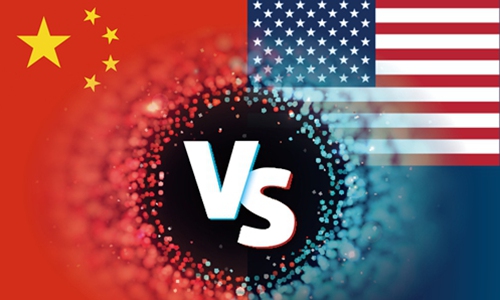Western media's sustained anti-China bias: Global Times editorial
Source:Global Times Published: 2020/6/8 21:58:40

Photo: GT
Since the novel coronavirus outbreak, mainstream Western media outlets have stood on the opposite side of China. Even as China's virus fight has achieved a phased success while European countries and the US are still mired in the crisis, the tone of Western media's China coverage has barely changed.
Take US media. Their reports on China serve their stance. As the confrontational nature of the US' China strategy becomes clear, it is very likely that US media's prejudice against China will become deeper, which may also take a decisive role in the entire Western opinion sphere.
China should be mentally prepared and not hold the illusion that Western media will objectively report China's changes, even if they are positive.
But things will not get much worse. The extent to which Western opinion impairs China's interests is decreasing.
First, the social mobilization capability of Western media is not as big as it used to be. Prior to the 2016 US elections, mainstream US media formed a collective siege against Trump, but they still did not prevent him from entering the Oval Office.
But in the following four years, many US media outlets have been "battling" with Trump and it is hard to say who the winner is and will be. If we go back to 20 or 30 years ago, US media then had the ability to determine the fate of a president.
Second, the glow of US media in China has become dim and they can hardly lead Chinese public opinion. In the early years, the Chinese had blind faith toward the Voice of America and they viewed the New York Times as the standard of objectivity and truth-telling. Now, they have realized that US media outlets have been used as tools in the US suppression of China and they do it clandestinely and "professionally." The era has ended that US and Western media can incite Chinese society.
Third, this is an era with excessive opinions. US and Western opinions are too extreme and sensational on China affairs and they deviate from the facts. They go against the interests of people in their countries, and their influence has also been undermined.
It would be good if US and Western media can report China objectively. But it is impossible to happen in a short period of time. The nature of media determines that they will report emotionally to attract readers. The combination of the West's parliamentarian system and the media makes such emotional coverage more convenient.
China should adapt to the hostility of Western opinion. China is not flawless, but its problems are disproportionate to the Western opinion's iron curtain-like containment of China. China should adapt to this reality rather than cater to them.
China should consolidate domestic confidence and contain the harmful ideological infiltration of Western opinion organs. We should make China's voice louder and heard in the international community and start the accommodation process between different voices in China and in the US-led West.
As China becomes increasingly important, the world needs voices from China. But a bumpy road lies ahead for China to expand its voices abroad. This is a learning process and a test for China's confidence, resolve and vitality.
Posted in: EDITORIAL